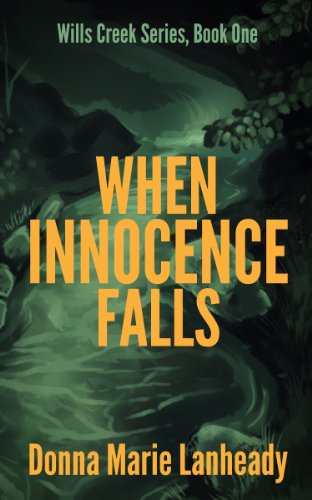an excerpt from
Eyewitness
by Rebecca Forster
Copyright © 2013 by Rebecca Forster and published here with her permission
Chapter 1
1966
Yilli had been left to guard the border, a chore he thought to be a useless exercise. No one wanted to come into his country, which meant he was guarding against his countrymen who wanted to get out. But even if those who were running away got by him (which more than likely they would), the government had mined the perimeter. It would take an act of God (if God were allowed to exist) guiding your feet to step lightly enough so that you didn’t blow yourself up. Yes, it would take quite a light step and a ridiculous will and he, Yilli, didn’t think there was anything outside his country that was any better than what was inside. So, he reasoned, there was no need for him to be sitting in the cold on this very night with a gun in his hand.
That was as far as Yilli’s thoughts went. He was a simple man: wanting for little, satisfied with what he had. Which was as it should be. All of these other things – politics and such – only served to make life complicated and very miserable. In his father’s age and his father’s before that, a man knew what was wrong and what was right because the Kunan said it was so. A man protected family above all else, not a border that no one could see.
Yilli shifted, thinking about his mother, his father’s time, but mostly about his comrades who believed they had tricked him. His mother had named him Yilli and that meant star. His comrades reasoned he was the best to watch through the night, shining his celestial light on any coward who tried to breach the border. Then they laughed and went off to have some raki, and talk some, and then fall asleep sure that they had fooled Yilli into thinking he was special.
Yilli smiled. Simple he may be, stupid he was not. Star, indeed. Shine bright. Hah! They knew he was a good boy, and he knew that they made fun with him. That was fine. His comrades were all good boys, too. None of them liked to be in the army or to carry arms against their countrymen, but that was the way of the world and they took their fun when they could.
Yilli picked up a stone and tossed it just to have something to do. He heard the click and clack as it hit rock, ricocheted off more stone, and rolled away. Rocks were everywhere: mountains grew from them, the ground was pocked with them, the houses were hewn from them. He threw another stone and then tired of doing that. His back ached with his rifle slung across it, so he slipped it off, leaned it against his leg, and sighed again. He sat down on a rock, spread his legs, and let the rifle rest upon his thigh.
He, Yilli, was twenty years old, married, and he would soon have a child. He should not be sitting on a rock, afraid to walk out to pee in case he should be blown to pieces. He should not be sitting in front of a bunker made of rock, throwing rocks at rocks. He had a herd of goats to tend in his village. Or at least he thought he still had a herd of goats. Sometimes the government took your things and gave them to others who needed them more. He didn’t need much, but no one needed his goats more than he did.
Yilli’s mind and body shifted once more.
He wished he had a letter from his wife. That would pass the time. But he was told not to worry. The state would see that he got his letters when he deserved to get them. But how could he not worry? He loved his young wife. She was slight and pretty, and he had heard things about childbirth. It could tear a woman up and she could bleed to death. Then who would take care of the child? If the child survived, of course. And, if the little thing did survive, milk was hard to come by. Not for the generals, but for him and his family it was. If he didn’t have his goats and his wife died, he would be screwed.
Yilli picked up another stone. He held it between his fingers, raised his arm, and flung it away. The sound of rock hitting rock echoed back at him. He reached for one more stone only to pause before he picked it up. Yilli raised his head and peered into the dark, looking toward the sound that had caught his attention.
Fear ran cold up his spine and froze his feet and made his fingers brittle. His big ears grew bigger. There was a scraping sound and then a cascade of displaced stones. Slowly, he sat up straighter and listened even harder. Someone or something had slipped. But how could that be? Everyone in these mountains took their first steps on stone and walked their journey to the grave on it. Yilli knew what every footfall sounded like and out there was someone stepping cautiously, nervously, hoping not to be found out. They were frightened. That was why they slipped.
Yilli raised his eyes heavenward just in case the government was wrong and there was a God. He thought to call out for his comrades, but that would only alert the enemy. That person might cut him down before his cry was heard. It was up to him, Yilli the goat herder, to protect his country and this border he could not see.
He rose, lifting his rifle as he did so. The gun was heavy in his hands. His breath was a white cloud in the freezing air. Above him the moon shined bright and still he could not see clearly. He narrowed his eyes, looking to see who or what was coming his way. He comforted himself with the thought that it might be a wandering goat, or a dog, or a sheep, but he knew that could not be right. The hour was too late and livestock would not be out. Also, animals were more sure-footed than humans. Yilli swallowed and his narrow chest shuddered with the beating of his heart.
“Who is there?” He called out, all the while wishing he were in bed with his pregnant wife, the fire still hot in the hearth, the goats bedded down for the night. “Who is there? Show yourself.”
He raised his rifle. The butt rested against his shoulder. One hand was placed just as he had been shown so that his finger could squeeze the trigger and kill whoever dared approach. His other hand was on the smooth wood of the stock. He saw the world only through the rifle sight: a pinpoint of reality that showed him nothing.
The sound came again, this time from his right. He swung his weapon. There was sweat on his brow and on his body that was covered by the coarse wool of his uniform. His fingers twitched, yet there was nothing but the mountain in the little circle through which he looked.
Sure he now heard the sound coming from the left, Yilli swung the rifle that way only to snap it right again because the sound was closer there. That was when he, Yilli, began to cry. Tears seeped from his eyes and rolled down his smooth cheeks, but he was afraid to lower the rifle to wipe them away. The tears stopped as quickly as they had begun because now he saw his enemy. It was only a shadow, but this was no goat or dog. This was the shadow of a man and he was coming toward Yilli.
“Ndalimi! Do not come closer. I will shoot. Ndalimi!” Shamed that his voice trembled like a woman, he stepped back and took a deep breath.
“Ndalimi!” Yilli shouted his order again, but the man didn’t stop. He didn’t even hesitate. It appeared he either had not heard Yilli, or was not afraid of him or, was simply desperate to be away.
Yilli lowered the muzzle of the rifle and raised his head to see more clearly. He blinked, thinking he only knew one person so big. But it could not be Konstadin coming up the mountain, moving from boulder to boulder, sneaking from behind the rock. Still, it was someone as big as Konstadin. Yilli snapped the rifle back to firing position. If it had been Konstadin, the man would have called out to him in greeting or to let him know that he had news from home. But if it were Konstadin bringing news of Yilli’s wife, how did he know to come to this place? He had told no one of his orders. Yillli became more afraid now that there were all these questions. He had also become more determined because he, Yilli, was not just a good boy, he was a man in the service of his country.
“Ndalimi!” Yilli barked, surprising himself, sounding as if he should be obeyed. His grip on his rifle was so tight his arms and fingers ached.
“Yilli.”
He heard the hoarse whisper that was filled with both hope and threat, but all Yilli heard was an enemy’s voice. He saw now that there were two of them. Perhaps there were more men coming, rebels ready to kill him in order to take over the government. These men could be desperate farmers wanting Yilli’s rifle so that they could protect their families. One of them might hit him or stab him and the other would take the rifle. They might shoot him with his own gun.
Tears streamed down Yilli’s face now. His entire body shook, not with cold but with a vision of himself bleeding to death without ever seeing his wife, or his child, or his goats.
With that thought two things happened: the giant shadow loomed up from behind a boulder and the rifle in Yilli’s hands exploded. His ears rang with the crack of the retort; the flash from the muzzle seared his eyes. Near deaf as he was the scream he heard was undeniable.
From the right a smaller man ran toward the little clearing and threw himself to the ground. He landed on his knees just as the moon moved and brightened the mountain. Yilli, who had been blinded, now saw clearly. It was not a man at all who had run fast and sure over the rocks but a boy. It was Gjergy. It was Gjergy who cried out to the man lying on the ground. The boy pulled at him and wailed and held his arms to the sky. Yilli could see the bottoms of the other man’s boots and the length of his legs. He saw that man was not moving.
As if in a dream, Yilli moved forward until he was standing beside them, the smoking rifle still in his hand. It was Konstadin, Gjergy’s brother, man of Yilli’s clan, lying on the ground, his arms thrown out, and his eyes wide open as if in surprise. His shirt was dark with the blood that poured out of his broad chest. Then Yilli realized that this was not Kostandin at all, it was only his body. Eighteen years of age and he was dead by Yilli’s hand.
“What have I done?”
He had no idea if he screamed or spoke softly. It didn’t matter. What was there to say? That he was a reluctant soldier? That he didn’t know how this had happened? That he was sorry to have taken a precious life? How could he make Gjergy, this boy of no more than twelve years, understand what he, Yilli, did not?
The rifle almost fell from Yilli’s hands. His heart slammed against his chest as if trying to tear itself from his body and throw itself into the hole in Konstandin’s. He, Yilli, wanted to make Konstandin live again, but the cold froze his legs, his arms, his very soul. His breath came short and iced in front of his eyes. His head spun. He blinked, suddenly aware that Gjergy was rising, unfolding his wiry young body. Yilli thought for a minute to comfort the boy, explain to him that this had been a tragic mistake, but Gjergy was enraged like an animal.
“Blood for blood,” he screamed and lunged for Yilli.
Unencumbered by Gjergy’s grief, Yilli moved just quickly enough to save himself. Gjergy missed his mark when he sprung forward and did not hit Yilli straight on. Still, Yilli fell back onto the ground with the breath knocked out of him. Instinctively he raised the rifle, grasping it in both hands, and holding it across his body to ward off the attack.
“Gjergy! It is me!” Yilli cried, but the boy was mindless with rage and would not listen.
“You murdered my brother.” Gjergy yanked on the rifle, but Yilli was a man eight years older. He was strong and fear made him stronger still.
“No! No! It was an accident,” Yilli cried.
Just as he did so, a bullet whizzed past them. Then another. And another. Yilli rolled away fearing his comrades would kill him and praying they did not kill Gjergy. He could not imagine bringing more sadness on the mother of those two good boys.
Gjergy bolted upright, scrambling off Yilli, running away faster than Yilli thought possible. He ran like the child he was, disappearing into the night, leaving only his words behind.
Blood for blood.
Gjergy had not listened that Yilli was only a soldier and that this was not killing in the way the Kunan meant. He had no time to remind the boy that the old ways were outlawed, and that he must forget that he had ever said such a thing. If he did not, there would be more trouble.
Suddenly, hands were on Yilli. His comrades had come running at the sound of the shot. Two of them ran after Gjergy even though they all knew they would not find him.
“Stop. He is gone.” Yilli called this as those who remained pulled him to his feet.
“Who was it?” one of them asked.
“No one. A stranger,” Yilli answered.
“This is Konstadin,” another soldier called out.
“The one with him was a stranger.” Yilli repeated this, unwilling to be responsible for a boy suffering the awful punishment that would be imposed should he be found out.
Then no one spoke as they stood looking at the body. All of them knew what this meant. It was Skender, captain of them all, who put his hand on Yilli’s shoulder. It was Skender who said:
“It is a modern time. Do not worry, Yilli.”
Yilli nodded. Of course, he did not believe what Skender told him any more than young Gjergy had believed him when Yilli tried to say that the killing had been an accident.
Though his comrades urged him to come to camp to rest, though all of them offered to take his watch now that this thing had happened, Yilli went back to sit on the rock where only a few minutes ago he had been thinking about his wife and his child. He put his rifle on the ground and his head in his hands.
He was a dead man.
2013
Josie slept alone the night the storm came up from Baja and crashed hard over Hermosa Beach. It was as if Neptune had surfaced, blown out his mighty breath, and wreaked godly havoc on Southern California with an all out assault of thunder, lightning, and hellacious wind. Yet, because she was curled under her duvet, because her bedroom was at the back of the house, it was no surprise that Josie wasn’t the one to hear the frantic knocking on the door and the screaming that came with it.
It was Hannah who woke with a start. It was Hannah who was terrified by the darkness, the howling wind, the driving rain, and the racket made by a man pounding on the door as if he would break it down. It was Hannah who tumbled out of bed and ran for Josie, staying low in the shadows for fear that whoever was outside might see her through the bare picture window.
Hannah called out as she ran, but her shriek was braided into the sizzle of lightning and then flattened by a clap of thunder so loud it rattled the house. She threw herself into the hall. On all fours, she crawled forward, clutched the doorjamb, pulled herself into the bedroom, and felt her way in the dark until she touched Josie.
Once. . .
Twice.. . .
Five. . .
“Josie! Josie!”
Hannah kept her voice low. If she raised it she would get more than Josie’s attention; she might get the attention of the man outside.
“What? Hannah. . .Don’t. . .”
Ten. . .
Twelve. . .
Josie swiped at the girl’s hand, annoyed in her half sleep. That changed when the wind blew one of the patio chairs into the side of the house. Josie clutched the girl’s hand, rolled over, and put the other one on Hannah’s shoulder.
“Sorry. Sorry. It’s okay. Go back – ”
“Josie, no. Get up. Someone’s out there.”
Hannah pulled hard. Clutch and pull and tap and shake and whisper. Hannah would have crawled in bed with Josie had she not sat up, reached over, and hit the light on the travel clock she preferred to the effervescent glow of a digital. Midnight. No one in their right mind would be out at a time like this, on a night like this. Josie released Hannah’s hand and ran one of her own through her short hair.
“Hannah, you were dreaming,” Josie mumbled.
Just then the small house shuddered, reverberating as it put its architectural shoulder into the huge wind that angled the drive of the rain. Beneath that, rolling in and out was something else that finally made Josie tense. Hannah pitched forward at the same time, throwing her arm over Josie’s legs as her head snapped left. She looked toward the hall. Her hair flew over her face when she whipped back to look at Josie again. Her bright green eyes were splintered with fear; Josie’s dark blue ones were flat with caution.
Josie put her hand on Hannah’s shoulder and moved her away. She kicked off the covers and swung her long legs over the side of the bed as Hannah fell back onto her heels. Josie put her finger to her lips and nodded. She heard it now: the hammering and the unintelligible screams. Josie snatched up her cell and handed it to Hannah.
“Three minutes, then call 911.”
Hannah nodded, her head bobbing with the time of her internal metronome. Josie pulled on the sweat pants she always kept at the end of the bed. She went for the drawer where she kept her father’s gun, thought twice, and left the weapon where it was. This was no night for criminals. Even if it were, they wouldn’t announce themselves.
Josie started for the living room just as lightning scratched out a pattern in the sky and sent shards of light slicing through the window and across the hardwood of the floors. The tumble of thunder was predictable. Josie cringed as she caught movement out of the corner of her eye. Hannah had followed her into the hall. Josie put her hand out and pushed hard at the air.
Enough. Stop.
Hannah fell back. Another lightning flash lit up her beautiful flawed body: the tattoos on the girl’s shoulder, the scar running up her thigh where Fritz Rayburn had dripped hot wax on her just for the fun of it, the mottled skin on her hand where she had been burned trying to save her paintings. Coupled with the fear on her face, Hannah looked as if some cosmic artist had outlined her into the canvas of Josie’s house. The man pummeled harder. Josie turned toward the sound just as his words were scooped up and tossed away before they could be understood. Behind Josie, Hannah moved. This time Josie commanded:
“Stay there, damn it!”
Instead, Hannah darted into the living room, defiant, unwilling to leave Josie alone if there were any possibility of danger. She would take Josie’s back the way she had in the mountains, the way she always would. But Josie had no patience for good intentions. She twirled, put her hands on the girl’s shoulder, and pushed her away.
“Hannah, I’m not kidding,” she growled.
Hannah’s eyes narrowed, her nostrils flared, but she fell back a step to satisfy her guardian. In measured strides, Josie crossed the living room and took the two stairs that led to the entry. She threw the porch light switch. Nothing. Another stutter of lightning gave Josie time to see Max curled up on his blanket, asleep and oblivious. Age had its blessings.
Above her, the tarp covering the place where she was installing the skylight snapped and whipped.
Behind her, Hannah paced and touched.
In front of her the man at the door continued to pound, but now Josie was close enough to understand that she was hearing cries for help. She threw the deadbolt and flung the door open. A man tumbled into her house along with the slanting rain. He was soaked to the skin, terrified to the soul, and high as a kite.
“Billy, man. . .gotta come. . .” He blabbered. He sputtered. He spit. He dripped. “Billy needs you . . .bad.” He coughed. He snorted. He hacked. “At the pier. . .come. . .”
His eyes rolled, hooded, and then closed briefly. Struggling to his feet, he started to go inside but slipped on the wet floor. When he tried it again, Josie pushed him back.
“You can show me. Wait. Out there.” Josie gave him one final shove, slammed the door shut, and dashed past Hannah who was running toward her room at the front of the house.
In her bedroom, Josie pulled on her running shoes and snatched up a flashlight. She was headed out again just as Hannah flew out of her bedroom, barely dressed, and struggling into a slicker. Josie raised her voice even though she and Hannah were facing each other in the entry.
“Stay put. Call Archer.”
Josie elbowed past, but Hannah’s terror was transferred to her like pollen. She turned to see that this was about more than the weather or even the man outside. Left alone. Abandoned. Someone else more important. Hannah was right about two out of three. Tonight, whatever was happening to Billy was more important than Hannah’s fear of abandonment. Leaving her alone wasn’t something Josie wanted, it was something she had to do.
Grabbing Hannah’s shoulders, Josie peered through the dark at those green eyes and mink colored skin. She pushed back the mass of long, black, curling, kinking, luxurious hair. Josie let her hands slide down Hannah’s arms, bumping along the spider web of hair thin scars that crisscrossed her forearms, grasped her wrists, and held up her hands. She looked at the phone.
“Tell Archer to get to the pier. I’ll be back as soon as I can.”
Josie pulled Hannah close and kissed the top of her head before ripping the door open again. The wind and rain rushed in, but the man was gone, running off to find a warm dry place. It occurred to her that he might have been hallucinating, imagining something had happened to Billy Zuni. In the next second Josie shut the door behind her. If there was any chance Billy needed her she had to go.
Tall and fast, she raced under the flash bang of the lightning and the base beat of thunder. She didn’t try to dodge the puddles because water was everywhere: pouring down on her head, stinging her face, weighing down her sweat pants, slogging in her running shoes. Her long t-shirt clung to her ripped body. She squinted against the rain, holding one hand to her brow to keep the water from her eyes. She steadied the broad beam of the huge flashlight in front of her on The Strand before veering off the pavement and onto the sand. Josie stumbled, tripped, and fell. The wet sand was like concrete and her knees jarred with the impact. She shouted out a curse though there was no one to hear. Then it didn’t matter that she was alone on the beach in one mother of a storm. The scream she let out cut through the sound and the fury. Her heart stopped. She froze for an instant, and then she scrambled to her feet.
Josie sidestepped parallel to the pounding surf, trying to hold the beam of light on a spot near the pier pilings. Frantically she wiped the rain away from her eyes hoping she was mistaken and that what she thought she was seeing was an illusion. It wasn’t. Under the yellow halo of light emanating from the massive fixtures on the pier Billy Zuni was caught in the raging, black ocean.
“Billy! Billy!”
Instinctively Josie went toward the water, unsure of what she was going to do once she got there. The waves were ugly. Riotous. Challenge them and they would swallow you up. If you were lucky, they might spit you out again. If you weren’t. . .
She didn’t want to think about that.
Knowing it was going to be tricky to get past them, Josie danced back and forth on the shore, taking her eyes off Billy for seconds at a time, searching for an opening in the surf as the waves rose and fell in a furious trilogy.
Bam! Bam! Bam!
Josie looked back toward the pier. She couldn’t see Billy.
Bam! Bam! Bam!
She looked again and saw him. A swell broadsided him, throwing him out of the water like a rag doll.
“Oh God!”
Kicking off her shoes, peeling off her sweat pants, Josie buried the butt of the flashlight at an angle in the sand. She gauged the swell of the next wave.
Bam.
And the one after that.
Bam.
And after that.
Bam. Bam.
Just when she thought it was futile, Josie saw an opening. Half naked, she ran into the water. A wave crashed into her shins, spume erupting into a cloud of stinging froth that covered her to her chest and knocked her off balance. Before she could right herself the water pulled her feet out from under her. Josie fell hard on her butt. Twisting and turning, she fought against the suction of the backwash, dug her heels into the sand bed, righted herself, and put her open-palmed hands out like paddles to cut the pull of the surf.
The next wave smashed into her belly like a brick, but she was still standing. Before she lost her nerve, knowing she had no choice, Josie leaned forward, arms outstretched, and started to push off. She would have to slice through the surf and get deep, and stay submerged long enough to let the second wave roll over her. Surface too soon and she would be washed back to shore; too late and she was as good as dead. Muscles tensing, Josie was already in her arch when a strong hand grabbed her arm.
“No. No. Don’t!”
Archer dragged her back to the shore, both of them buffeted by the waves, stumbling and clinging to one another just to stay ahead of the water.
“Billy’s out there! Look!”
Josie whipped her head between the man who had hold of her and the boy she could no longer see. Her protests were lost in the howl of a new wind. Archer wasted no time on words she would never hear. Instead, he dug his fingers into her arms, shook her, and turned her away from the ocean.
Help was not only coming, it had arrived. Josie fell against Archer and watched the rescue vehicle bump over the sand, its red, rotating light looking eerie in the blackness. The night guard braked and simultaneously threw open the door of the truck. He left the headlights trained on the water. In the beam, the guard ran straight for the ocean, playing out the rope attached to the neon-orange can slung across his shoulder. Tossing it into the sea, it went over the waves and pulled him with it.
Josie broke away from Archer. She pulled her arms into her body, raised her hands and cupped them over her brow to keep the rain out of her eyes. Archer picked up the flashlight and her sweat pants. The pants were ruined. He tossed them aside and watched with her as the lifeguard fought to reach the boy.
Billy seemed velcroed to the pilings by the force of the water only to be torn away moments later and tossed around by an ocean that had no regard for an oh-so-breakable body. Josie cut her eyes toward the last place she had seen the lifeguard. She caught sight of him just as he went under. A second later he popped back up again. The bright orange rescue can marked his pitiful progress. Josie sidestepped, hoping to get a better view. Archer’s free hand went around her shoulder to hold her steady and hold her back. She shook him off. She wouldn’t do anything stupid. Archer knew she wouldn’t. He was worried she would do something insane.
Suddenly the guard was thrown up high as he rode a gigantic swell. It was exactly that moment when fate intervened. A competing swell sent Billy within reach. Josie let out a yelp of relief only to swear when the man and the boy disappeared from view.
“Christ,” Archer bellowed.
He held the flashlight above his head, but when Josie dashed into the surf again Archer tossed it aside and went with her. The water swirled around their feet as they craned their necks to see through the nickelodeon frames of lightning.
“There! There!”
Josie threw out her arm, pointing with her whole hand. The boy was struggling. For a minute Josie thought he was fighting to get to the guard, then she realized Billy was fighting to get away from him. She screamed more at Billy than Archer.
“What are you doing?”
Billy and the guard went under. When they surfaced the boy had given up. It seemed an eternity until they were close enough for Josie and Archer to help, but the guard was finally there, dragging a battered and bruised Billy Zuni to the shore.
Josie crumpled to the sand under Billy’s dead weight. Cradling the teenager’s head in her lap, she watched while the guard did a quick check of his vitals before running to call for an ambulance. Under the light Archer held, Billy’s skin was blue-tinged and bloated. Suddenly his body spasmed; he coughed and wretched. Water poured out of his mouth along with whatever had been in his stomach. Josie held tight knowing all too well the pain he was in.
“It’s okay. You’re safe now,” she said.
Billy’s arms encircled her waist. He pushed his head into her belly. As the rain poured down on the world, and lightning crackled over their heads, Billy Zuni clutched Josie Bates tighter and cried:
“Mom.”
Stunned, Josie looked up just as lightning illuminated the beach. She saw Archer’s grim face and then she saw Hannah standing in the distance. Unable to remain alone in the house or stand by while Billy was in danger, Hannah had followed Josie. But the girl’s eyes weren’t on Billy Zuni, and she had not heard him cry for his mother. Hannah was looking toward The Strand, peering into the dark, not seeing anything really, but only feeling that there were eyes upon them all.


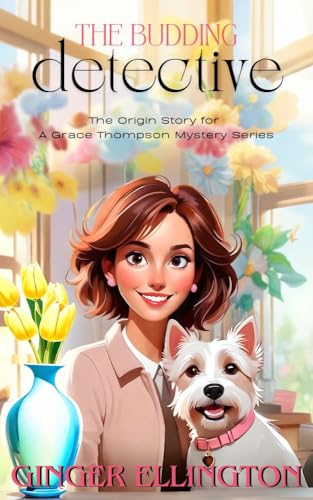
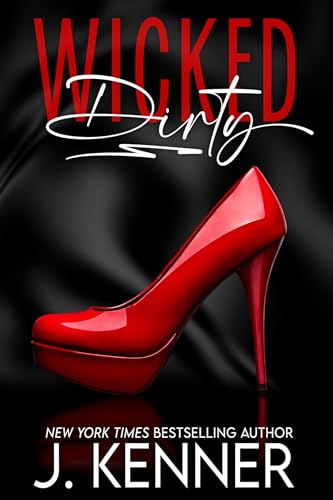
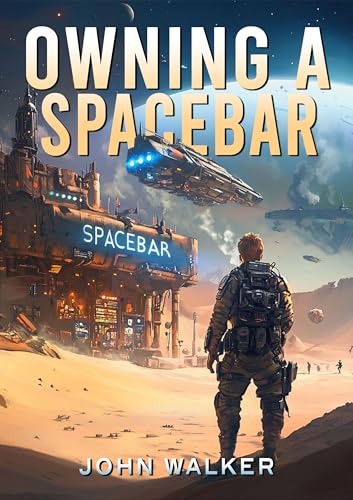
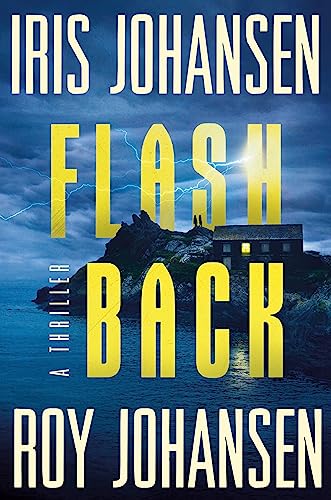

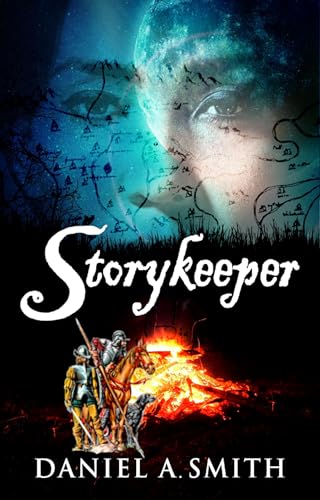
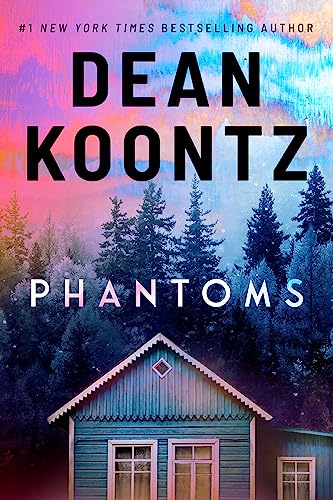
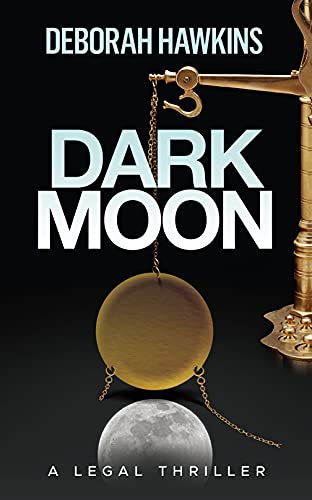

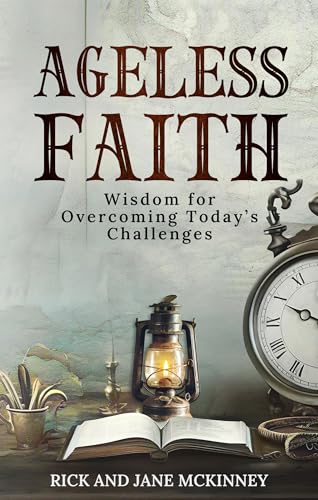













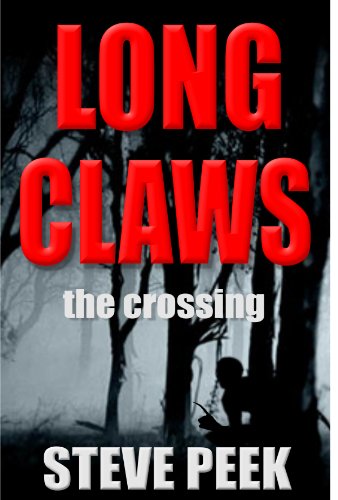
 Steve has only recently seriously taken to writing. Though he wrote and managed to have a couple of books published during his life, something clicked a few years ago and now, for better or worse, he sits at his table researching and writing about things that interest him.
His wife, Annie takes care of him. She keeps him eating too well and laughing often in their old farmhouse halfway up the Blue Ridge Mountains.
Steve's forty year career in the game industry allowed him to travel extensively and explore histories and myths of peoples and places.
Steve has only recently seriously taken to writing. Though he wrote and managed to have a couple of books published during his life, something clicked a few years ago and now, for better or worse, he sits at his table researching and writing about things that interest him.
His wife, Annie takes care of him. She keeps him eating too well and laughing often in their old farmhouse halfway up the Blue Ridge Mountains.
Steve's forty year career in the game industry allowed him to travel extensively and explore histories and myths of peoples and places.



